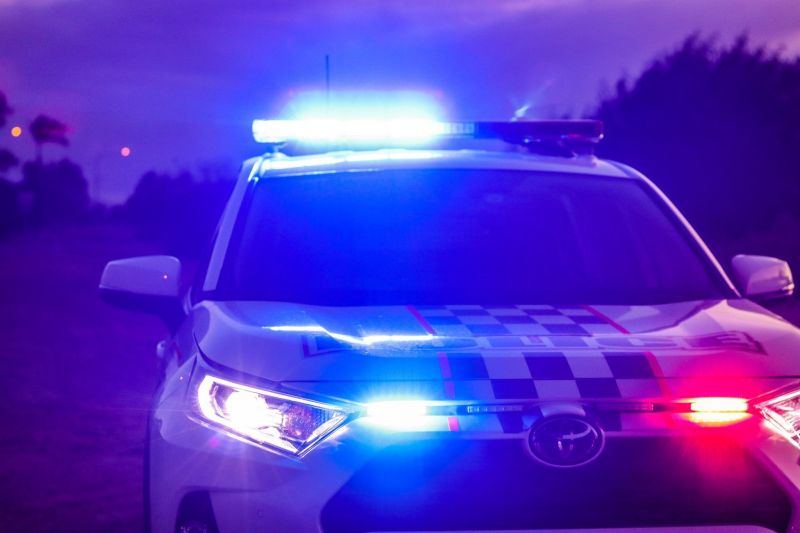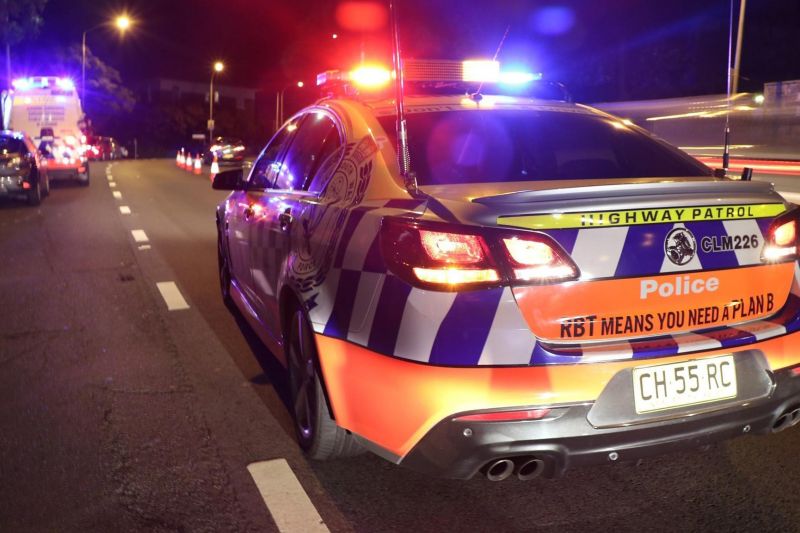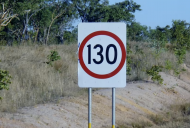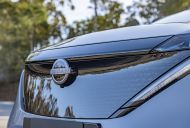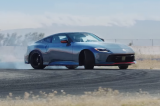It’s an unnerving experience being pulled over by the police, even if you have not done anything wrong.
- As a rule of thumb, pull over where it’s safe
- Don’t stop in the middle of a highway or motorway
- Police may follow you and try and spot a safe place to pull you over
You’ll know if an officer is trying to stop you. They will have their flashing lights on, and/or their sirens, and if you don’t notice, they may also communicate with you via a loudspeaker on the vehicle.
If you still fail to comply, they may change the siren tone from “wail” to “yelp”, or perhaps they might “blast the air horns”.
One police officer we spoke to said that if you can find a spot to stop that is safe and out of the way of anyone else, that is the best thing to do.
For instance, if you’re driving in a built-up area, that could be the forecourt of a service station, a parking lot, or simply by the kerb of a street.
The officer stated unreservedly that stopping as soon as possible – like, in the middle of a three-lane highway – is not the safest way of doing things. They said that their guidance for all road users is simply to pull over “when it is safe to do so”.
On a highway, that might be an emergency stopping bay, or the far edge of the road if there are large side lanes, or – if you’re driving on a country road – it could be that the best spot to stop is in someone’s driveway.
It goes without saying that everyone has different comfort zones when it comes to safety on the road, so you might not feel as though you can’t pull off the road to stop for the police. In that instance, continue to drive until you are comfortable, but be sure not to speed up or attempt to evade the police.
If you fail to stop after a period of time, the police may consider the situation a pursuit – though this is typically associated with speeding to try and evade police.
As the Crimes Act 1900 in New South Wales states, a driver: (a) who knows, ought reasonably to know or has reasonable grounds to suspect that police officers are in pursuit of the vehicle and that the driver is required to stop the vehicle, and (b) who does not stop the vehicle, and (c) who then drives the vehicle recklessly or at a speed or in a manner dangerous to others, is guilty of an offence.
If you were to be found to be engaging in a police pursuit, you may face three years imprisonment and a three-year driving ban.
In other states like Queensland, there is a “no pursuit” policy, which is supposed to ensure that the outcome is safe for everyone else who may be on the road.
A highway patrol officer told us that “police always choose a safe spot to pull over, because they know they are going to hit first”. That’s because police won’t attempt to overtake you and pull in front to stop you. The risks, it seems, are too high.
In Queensland, the mentality is that officers will not chase unless there are “extreme circumstances”, that being if the officer has knowledge that the driver has committed a “life imprisonment” offence – maybe they shot someone, and there’s no other way to capture them than to pursue the getaway vehicle.
However, it is clear that in Queensland, the mentality is quite different.
The highway patrol officer we spoke with said “85 percent of people who won’t stop are juveniles in stolen cars, so it will only end badly – more often than not with someone innocent being killed”.
Drugs and drinking obviously have a part to play in that, as well, with our contact stating that “meth makes people stupid” and more likely to take risks.
Whereas drunk drivers are more likely to keep driving and not stop. They may have their indicator on, and signal their intent to pull over, but more often than not they will continue to drive.
So when it comes to picking the right time to stop, you may well find that the police will have followed you to try and help you get out of the way of other road users. Typically, police want you to pull off the roadway, and ideally into a space where your vehicle and theirs won’t be causing traffic jams or accidents.
One other pointer – never stop on the crest of a hill. It might seem logical to some, but in the panic of the moment, you don’t want to pull over where other road users may approach and not be able to stop in time.
The best advice is to drive safely, and – no matter what state or territory you’re in – if the police are attempting to pull you over, for whatever reason, then you should make sure you stop when it’s safe to do so.
Not intended as legal advice. Check with the relevant roads authority in your state or territory.


